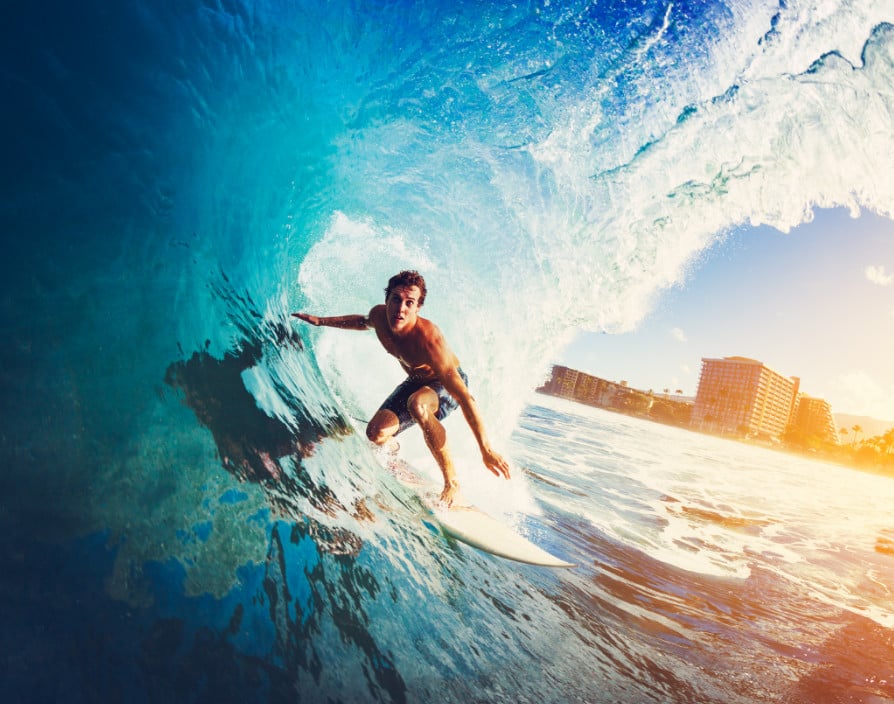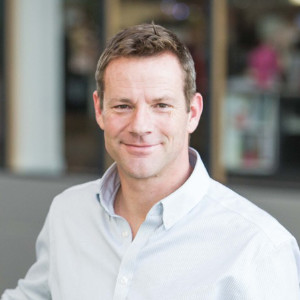Understanding more about what makes businesspeople who they are and what it takes to succeed is a bit of an obsession for me. It’s one of my favourite topics of conversation given half a chance. Over the past few columns I’ve touched upon character traits, lessons learned and looked in a little more detail at a few key personalities, Google and Mark Cuban spring to mind.
In my early twenties I aspired to make a career out of windsurfing. It was all about chasing the waves competitively, all around the world. Sport was the thing I was any good at, leaving school with one A-level and two very disappointed parents. I did not expect to be where I am now, and I most definitely, did not expect to love what I am doing now.
Curious to discover if there were any links between some of the more risky sports and success in business, I managed to convince my team to sneak in a question about it on one of our surveys of 750 businesspeople which helps us gauge the state of the market.
The results showed that 50% of Senior Executives and those in Upper Management and 48% of self-employed have participated in extreme sports, compared with just 20% of manual labourers and 31% of office and admin staff who have done so.
While an average of 33% of those surveyed admitted participating in extreme sports, surprisingly their perception of themselves as risk takers was different, as when asked to rate themselves on a risk scale of 1-10 with 10 being most likely to take risks, 58% rated their risk taking as 6 or above.
The five most popular extreme sports experienced by those surveyed are Sky diving (28%), Surfing (14%), Gliding (11%), Bungee jumping (8%) and Abseiling (7%). The most popular reasons given for participating are for a thrill or adventure (cited by 26%) and for fun and excitement (cited by 25%). Interestingly, when asked for the reasons for not participating in extreme sports, 50% of those surveyed said they were worried about the risks of physical injury and were afraid. Sadly 15% feared they are just too old for extreme sports.
Interesting stuff, no? I was really pleased to see that so many businesspeople have participated in extreme sports, but I was particularly interested to see a possible link between physical risk taking and business success.
I think that if you are the type of person who enjoys the thrill of a risky physical activity, despite the dangers, then you are more likely to thrive in the high pressure atmosphere that you get in the higher levels of business, especially if you are running your own business. In windsurfing, when you are losing a race with nothing to lose, you go for broke by sailing outside the obvious course.
When we set up Moneypenny, it didn’t seem a particularly novel idea, it made perfect sense to Rachel and myself but for the risk-averse banks and loan providers, it was a concept a little too far ahead for them. We sailed outside the obvious course, but this time from the start of the race.
We were utterly penniless. Rachel was pregnant. I broke my leg windsurfing. We worked all the hours possible and wore so many different hats the list is too long to bore you with, but you get the idea. The thing was, we knew that we weren’t in it to stay small, we wanted to grow. And to do that, we had to somehow create ways of doing everything at scale, yet without the funds. Our start-up funding consisted of £5,000 from an aunt and the rest from credit cards and overdrafts. To say it was tough is an understatement. However, because of this we shaped the business to be self-funding out of necessity, and it has stood us in good stead. Today we are the largest business of our type.
In my early days windsurfing I used to catch every wave possible. It was frenetic, extremely tiring, and frustrating. I learnt that success was about choosing only the best waves for me and giving them absolutely everything. Apply this to the business world and it reflects our philosophy of aptitude versus attitude when hiring staff. Choose only the best for your business, and not necessarily the best on paper. Brilliant people can do brilliant things given the best waves to ride.
With business, as with sport, there is no conclusive study categorically stating how much of a person’s success is based on talent and ability, and how much is psychological. There’s a whole lot to read about it, don’t get me wrong. But I do think that there is something to be said about those who play extreme sports and those who succeed. Whether it is a strong sense of self-discipline and determination to conquer the sea or the sheer optimism that you will be able to, people who take risk are bold. But they know that they will get knocked off, they will learn the extent of their abilities, face defeat but will continue to move forwards, regardless. Risk-takers know that success isn’t going to fall into your lap. Sometimes you have to hunt for it. And in that chase, opportunities arise, those best waves, if you like, that may never have been found if they had waited.
That’s how we handle projects at Moneypenny and I think anyone in business can apply the same principles: carefully choose your best wave and then give it everything you’ve got
“
Share via:








































